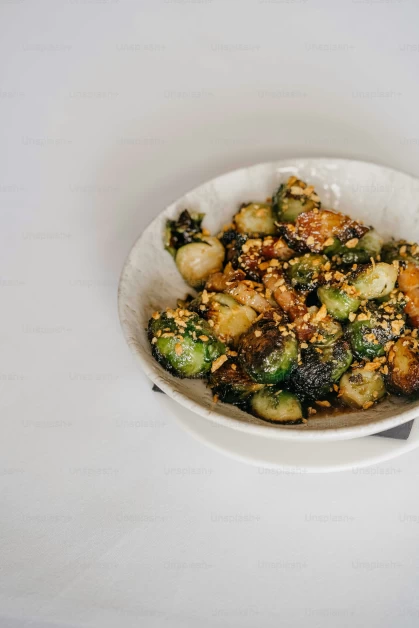- Your cart is empty
- Continue shopping

Table of Contents
- Ramen Noodles and the Recall in Taiwan
- Ethylene Oxide and its Use
- Nongshim’s Response and the Australian Situation
- Calls for Testing Imported Food Products
- Health Risks Associated with Ethylene Oxide
- Varying Views on Ethylene Oxide
- Risk Assessment of Ethylene Oxide in Food
- Taiwan’s Recall of Other Instant Noodle Brands
- The Need for Independent Monitoring
James Lacey, a Japanese language teacher living in Brisbane, is a fan of ramen noodles. He particularly enjoys instant ramen products from Korea. However, his love for these noodles has been tainted by a recent recall in Taiwan. Noodles made by Nongshim, a brand he buys in Australia, were recalled in Taiwan due to the detection of ethylene oxide in the seasoning powder package. This incident has raised concerns about the safety of imported food products in Australia.
Ramen Noodles and the Recall in Taiwan
James Lacey expresses his enthusiasm for instant ramen products from Korea, especially those with interesting varieties. However, he is now cautious after the recall of Nongshim noodles in Taiwan earlier this year. The Taiwan food authority discovered high levels of ethylene oxide, a pesticide residue, in the seasoning powder package of the ramen noodle product. As a result, the products were either recalled or destroyed.
Ethylene Oxide and its Use
Ethylene oxide is a gas commonly used in the manufacturing of other chemicals to sterilize medical equipment. It was also previously used in Australia to control pests on stored food products until it was banned in 2003 due to health concerns. While Australian authorities do not test imported food products for this chemical, it is still used to treat food products overseas.
Nongshim’s Response and the Australian Situation
Nongshim’s Australian branch has clarified that the products of concern in Taiwan are different from those sold in Australia. They have stated that they do not use raw materials fumigated with ethylene oxide. The instant noodles imported to Australia are visually inspected and assessed for compliance. The Department of Agriculture, responsible for testing imported food, claims that it is not feasible or practical to test all imported food for trace amounts of all chemical residues.
Calls for Testing Imported Food Products
The recall of Nongshim noodles in Taiwan has sparked concerns in Australia, with some calling for imported food products to be tested for ethylene oxide. Mariann Lloyd-Smith, a senior adviser for the National Toxics Network, argues that ethylene oxide should be added to the list of chemicals tested in imported foods. She believes that the Australian chemical regulations are out of step with modern thinking and that more research should be conducted in this field.
Health Risks Associated with Ethylene Oxide
Food Standards Australia New Zealand (FSANZ) acknowledges that continuous exposure to ethylene oxide over a long period may increase the incidence of cancer. However, FSANZ states that the main concerns regarding ethylene oxide are health effects resulting from workplace exposure to the chemical. They claim that associated health effects are highly unlikely for the general population outside of specialized workplaces that use ethylene oxide gas.
Varying Views on Ethylene Oxide
While European consumer rights group Foodwatch believes that no safe level of exposure to ethylene oxide can be defined, the United States Centers for Disease Control maintains that exposure of the general population to the chemical is usually at levels lower than those known to cause health problems. However, workers exposed to high levels of ethylene oxide are at a greater risk of health impacts. The US National Cancer Institute lists several cancers associated with occupational exposure to ethylene oxide.
Risk Assessment of Ethylene Oxide in Food
Experts agree that the risk of ethylene oxide in food is higher for workers who inhale the chemical than for consumers who consume it. The cooking process and the use of spices can affect the concentration of ethylene oxide in food. Tetyana Cheairs, an assistant professor of pathology, microbiology, and immunology, explains that the chemicals tend to dissipate during cooking. While the risk from the food itself might not be high, caution is still recommended.
Taiwan’s Recall of Other Instant Noodle Brands
In addition to Nongshim noodles, Taiwan has also recalled other imported instant noodle products from Vietnam, Japan, Indonesia, and the Philippines. Experts suggest that the presence of 2-chloroethanol, a by-product of ethylene oxide, in these noodles indicates the use of ethylene oxide as a fumigant during the production cycle. While ethylene oxide has been banned in Australia for 20 years, it is still used to treat food products in many other countries.
The Need for Independent Monitoring
Mariann Lloyd-Smith calls for independent monitoring of imported food products, including instant noodles, to test for chemicals like ethylene oxide. She believes that monitoring should be taken out of the hands of voluntary industry monitoring and placed in a strict regulatory process that is regularly conducted. The focus should be on public health rather than industry interests.
In conclusion, the recall of Nongshim noodles in Taiwan due to the detection of ethylene oxide has raised concerns about the safety of imported food products in Australia. While the Australian authorities do not test imported food for this chemical, experts and consumer rights groups have differing views on the potential health risks associated with ethylene oxide. The use of ethylene oxide as a fumigant in food production is still prevalent in many countries, and calls have been made for independent monitoring of imported food products to ensure their safety.
www.harigon.com.au
